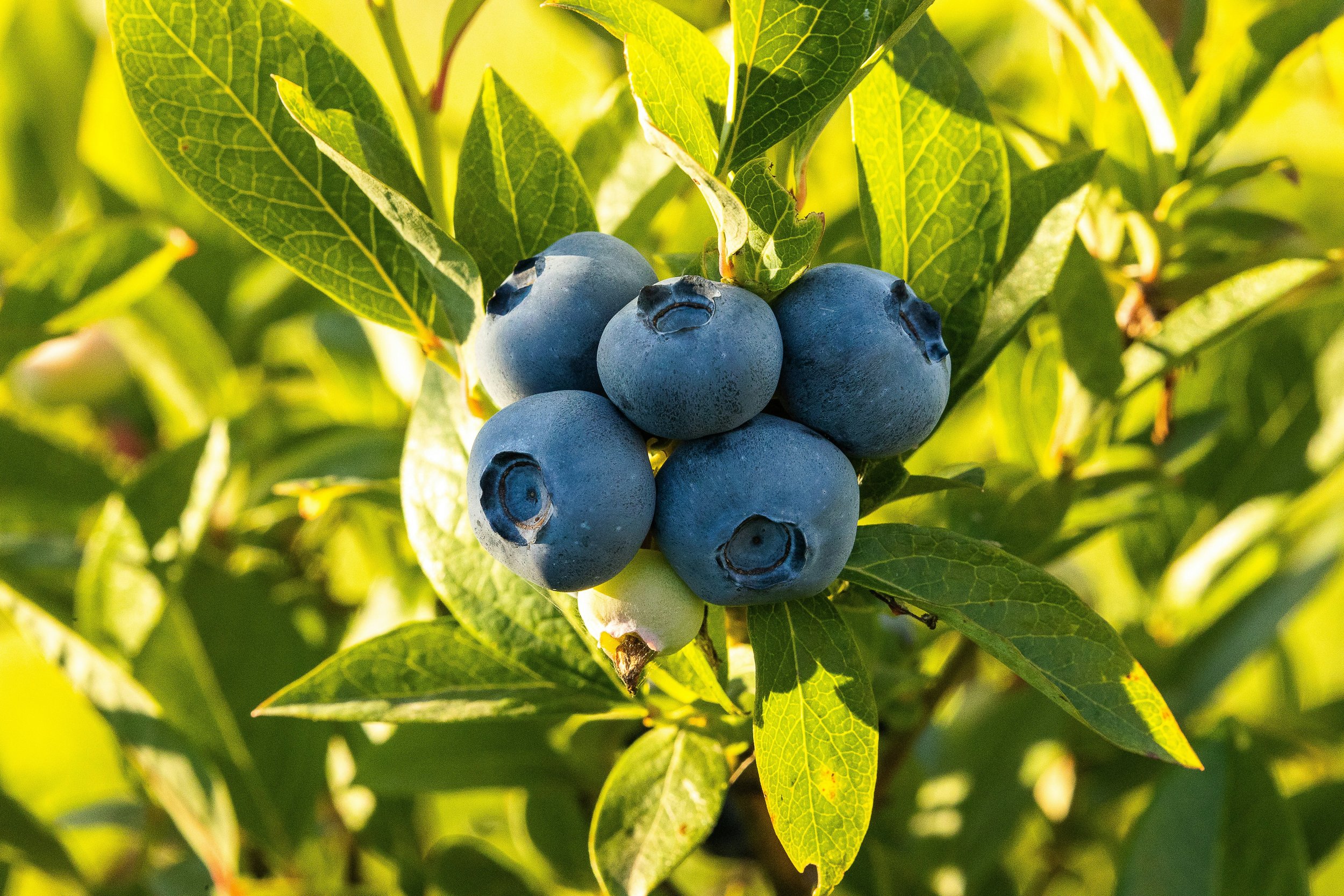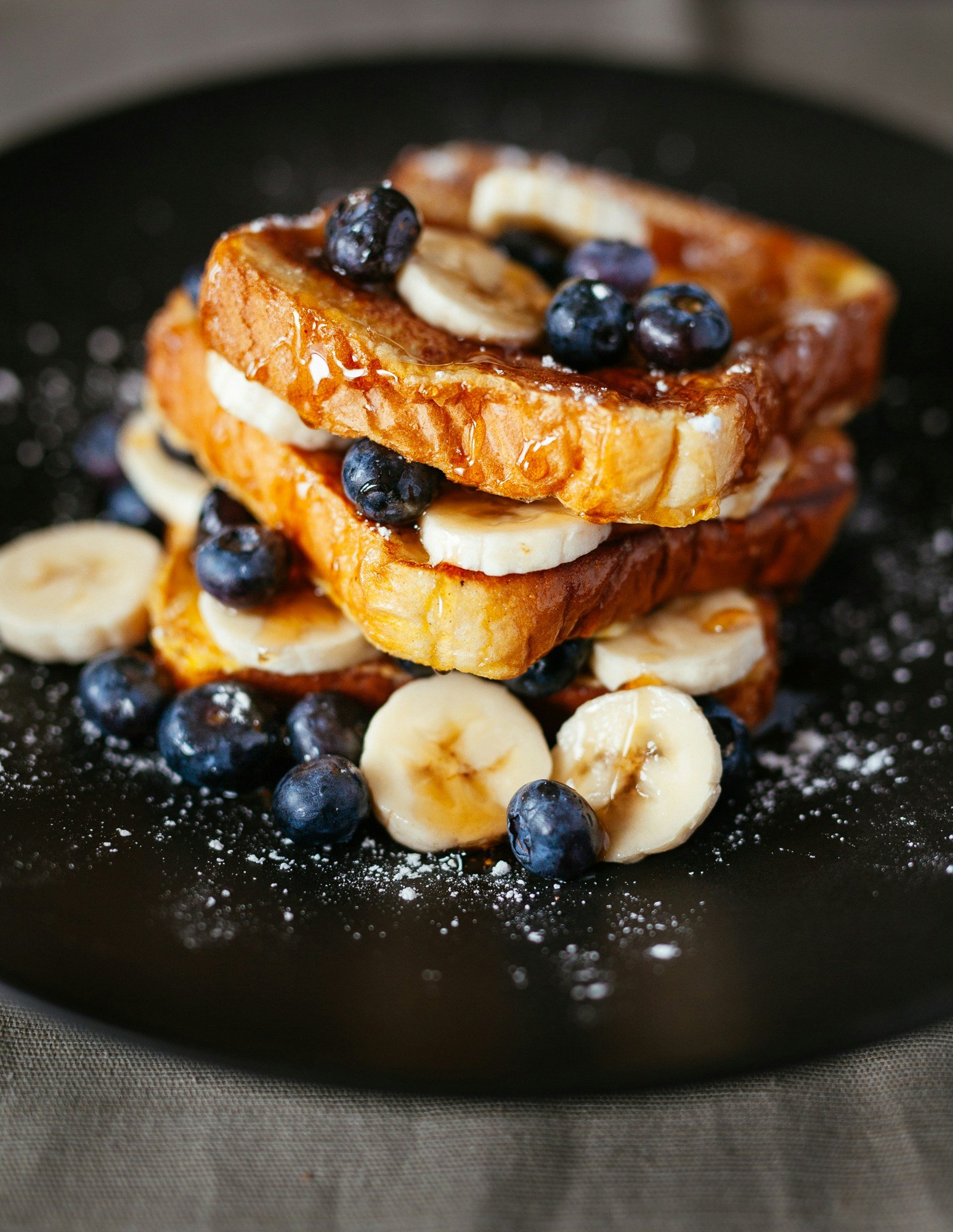 Image 1 of 3
Image 1 of 3

 Image 2 of 3
Image 2 of 3

 Image 3 of 3
Image 3 of 3

Blueberries
With hundreds of types of blueberries available, the cultivar fruit is small and juicy, with a taste that can vary from tart to sweet; Wild blueberries are smaller than cultivated ones and often have a more floral taste.
Blueberries are high in antioxidant appearing scavenge free-radicals and reduce inflammation in the brain, leading to improvements in cell signalling, learning, memory and motor skills. Their main antioxidant compounds is a polyphenols called flavonoids; One group of flavonoids in particular — anthocyanins — have the potential to improve cognition and prevent degeneration of the brain.
In season July through August
With hundreds of types of blueberries available, the cultivar fruit is small and juicy, with a taste that can vary from tart to sweet; Wild blueberries are smaller than cultivated ones and often have a more floral taste.
Blueberries are high in antioxidant appearing scavenge free-radicals and reduce inflammation in the brain, leading to improvements in cell signalling, learning, memory and motor skills. Their main antioxidant compounds is a polyphenols called flavonoids; One group of flavonoids in particular — anthocyanins — have the potential to improve cognition and prevent degeneration of the brain.
In season July through August
With hundreds of types of blueberries available, the cultivar fruit is small and juicy, with a taste that can vary from tart to sweet; Wild blueberries are smaller than cultivated ones and often have a more floral taste.
Blueberries are high in antioxidant appearing scavenge free-radicals and reduce inflammation in the brain, leading to improvements in cell signalling, learning, memory and motor skills. Their main antioxidant compounds is a polyphenols called flavonoids; One group of flavonoids in particular — anthocyanins — have the potential to improve cognition and prevent degeneration of the brain.
In season July through August
